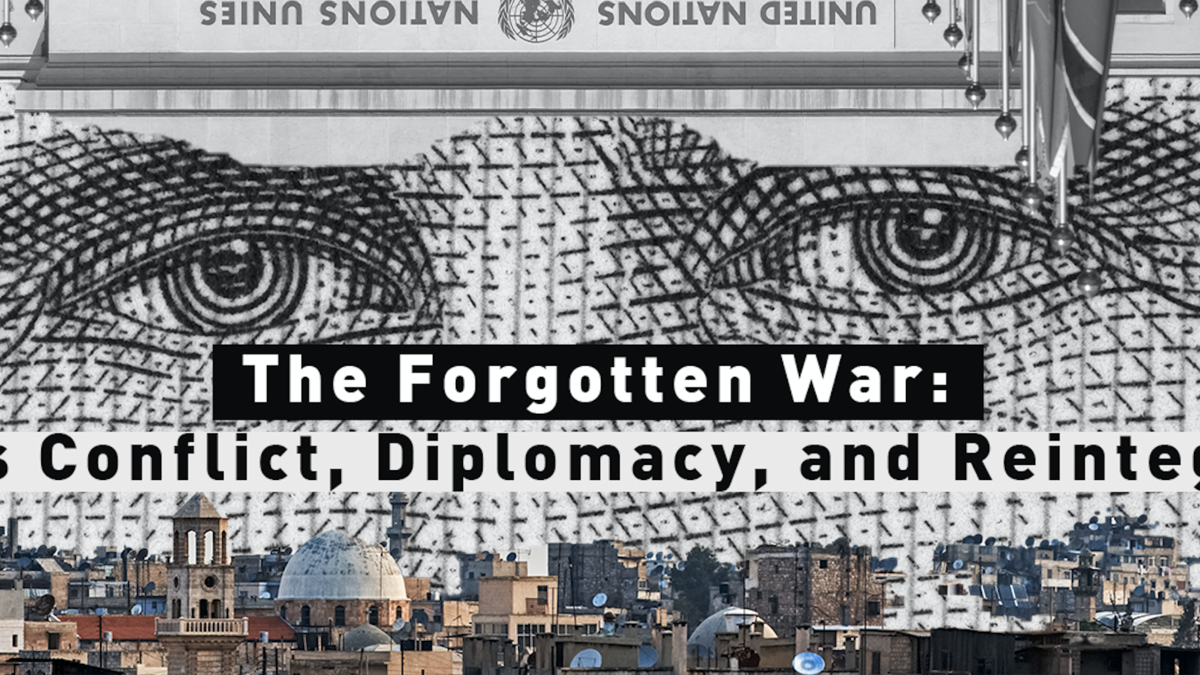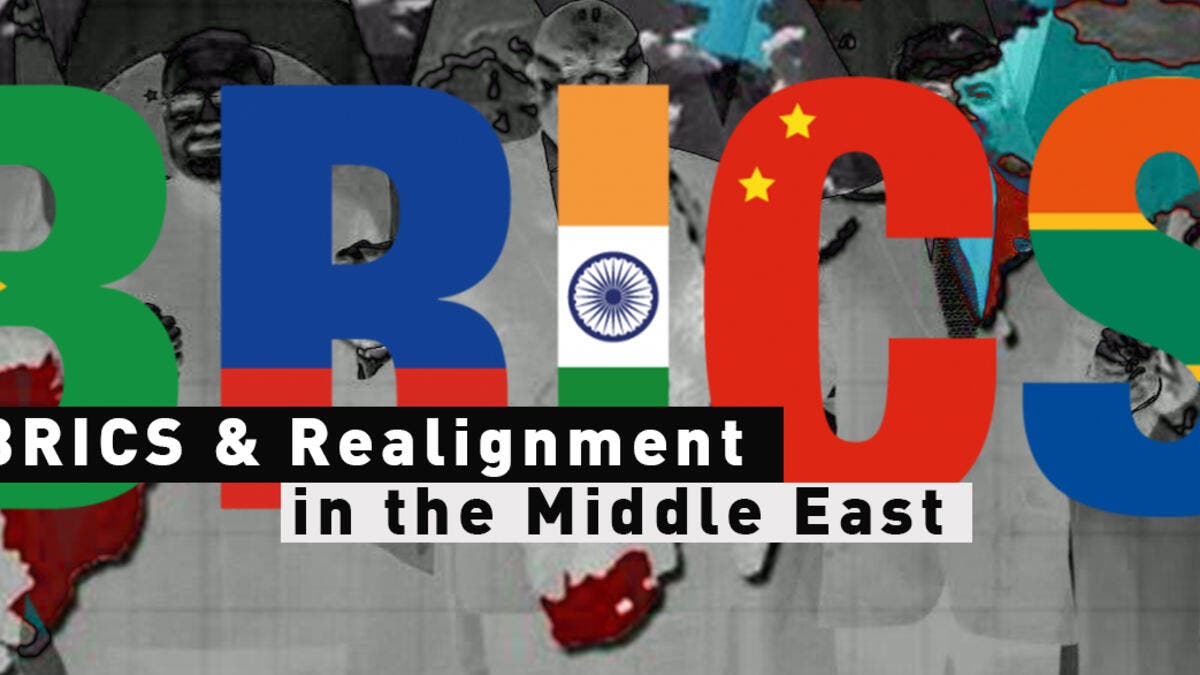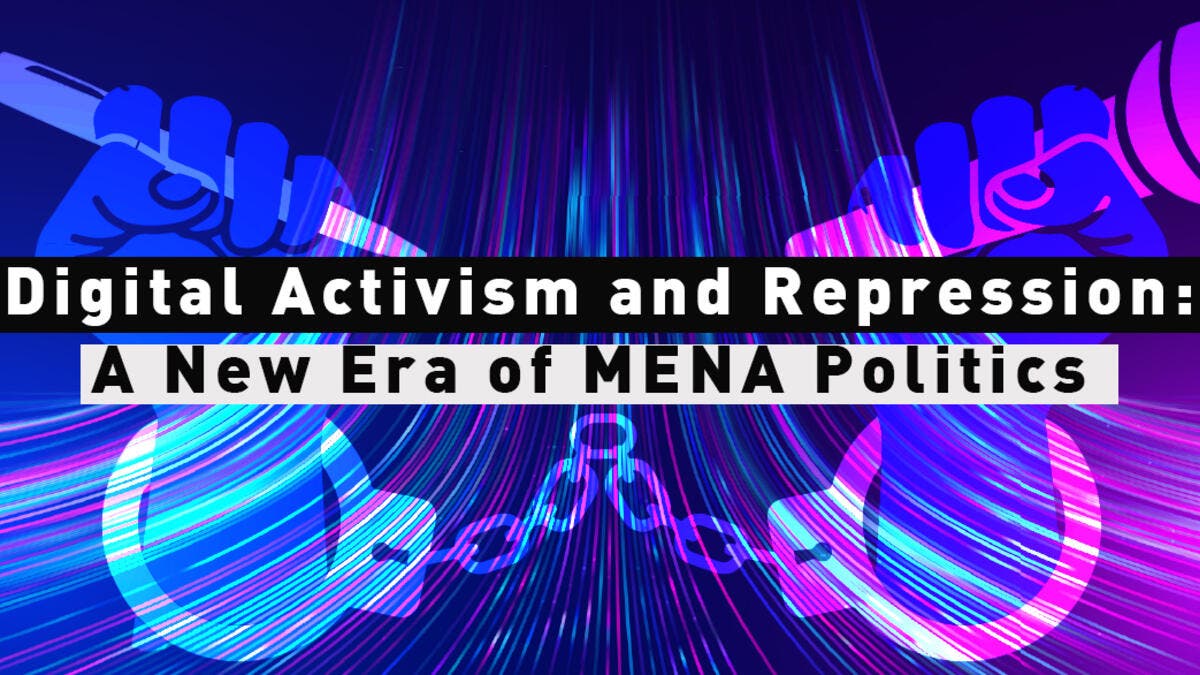
Introduction
The exit of Donald Trump from the White House is being welcomed by many as a return to normalcy in US politics. However, what exactly that normalcy is, and how useful it is, depends on whether you look inside or outside the US. Trump, in many ways, has exemplified many long-term modes of seeing the world that have characterised the American elite for decades. It’s unlikely that Biden’s presidency will differ greatly from that tradition.
After a long few days of election news, Trump’s exit was more bizarre than dangerous. As it becomes overwhelmingly likely that Biden has won the presidency, Trump tweeted that a press conference would be held at Four Seasons Total Landscaping in Pennsylvania. Richard Hall, a journalist for the Independent, assumed Trump was referring to a Four Seasons hotel in Philadelphia. It turned out, however, that Trump’s legal team would convene at a small landscaping company on the outskirts of the city. By the time Biden’s victory had been announced, the press had already begun to dwindle, and a typically enthused Rudy Giuliani gave a speech to a makeshift crowd of Trump supporters and distracted journalists.
The exit of Donald Trump from the White House is being welcomed by many as a return to normalcy in US politics.
There is a sense from Trump’s recent appearances that he is longing to be free from the trappings of power. In a rally in late October, Trump, looking at trucks that were parked close to the fences enclosing his supporters, said “nice trucks… You think I could hop into one of them and drive it away? I’d love to do it. Just drive the hell out of here. Just get the hell out of this.”
A staffer inside the Trump team during election week told New York Magazine that Trump “wants to lose. He’s out of money. He worries about being arrested. He worried about being assassinated,” they said. “It hasn’t been a great experience for him. He likes showing people around the White House, but the actual day-to-day business of being president? It’s been pretty unpleasant for him.”
Like Trump it seems, people around the world are unhappy with him being president. Furthermore, a survey conducted by Arab Barometer suggests that people across the Middle East and North Africa doubt whether a Donald Trump or Joe Biden presidency will have any positive effect on the region. Conducted before the election on 3 November, the survey found that more people responded that they didn’t know or that that a new US president would make no difference, as opposed to showing a preference for either Trump or Biden.
Despite Trump’s son, Donald Trump Jr., suggesting that most of the world, apart from Mexico, Liberia, India and China, would have backed the Republican incumbent, Trump is one of the world’s most unpopular leaders. An average of 12% of Arab citizens were in favour of Donald Trump’s policies in the region. In comparison, Vladimir Putin has an approval rating of around 28% and Turkey’s president Recep Tayyip Erdoğan was seen favourably by 51% of those responding to the survey. Chinese President Xi Jinping was liked by around a third of respondents.
a survey conducted by Arab Barometer suggests that people across the Middle East and North Africa doubt whether a Donald Trump or Joe Biden presidency will have any positive effect on the region
Those asked in Tunisia, Morocco, Jordan and Algeria all preferred a Biden win to a Trump re-election. In Jordan, where only 3% said that they favoured Trump, an equal number said that they thought both Trump and Biden were as bad as each other, with another 50% responding that they didn’t know.
Although Biden’s election signals a return to political normalcy in the US there is a sense that, for millions around the world, long-held US vision on military and diplomatic muscle will still be markers of the new administration. Trump’s actions on Yemen, Palestine and Iran have had a significant impact on the region. How will Biden’s policies likely differ from his Republican predecessor?

Former US Vice President and Democratic presidential hopeful Joe Biden, Wilmington, Delaware, on March 12, 2020. SAUL LOEB/AFP
White-Washing Recent History
Donald Trump has often been understood as a politician who sees international affairs on relationships based on transactions; pragmatic understandings on what America, or Trump personally and politically, is likely to gain from agreements, he nonetheless has extended and intensified US military operations abroad, particularly in the Middle East.
Much of Trump’s international warfare was through air strikes on ambiguous targets. By May this year, the Trump administration had launched 40 airstrikes on Somalia alone since the beginning of the year, more than the administrations of G W. Bush and Obama combined between 2007 and 2016. These figures are somewhat misleading because, of course, Bush declared major wars against Iraq and Afghanistan which, combined, have killed 1 million people.
In July, for example, House Democrats worked with Republicans, including the daughter of Dick Cheney, Representative Liz Cheney, to block expenditure that would see a reduction of US forces in Afghanistan
As Glenn Greenwald has argued, understanding Trump on a strictly Democratic/Republican binary is a mistake. In July, for example, House Democrats worked with Republicans, including the daughter of Dick Cheney, Representative Liz Cheney, to block expenditure that would see a reduction of US forces in Afghanistan. Greenwald argues that the positioning of the Democrat-self in an existential struggle against Trump’s neo-fascism serves only to glorify the rather muted politics of the mainstream Democratic party.
“But the most potent incentives for this warped fairy tale have been the whitewashing of recent U.S. history,” Greenwald writes, “the maintenance of American Exceptionalism, and most of all the reputational and career rehabilitative value it bestowed on all those pre-Trump officials, apparatchiks and myth-disseminating journalists who committed great evils and left a raft of violence, lawlessness, destruction and death in their wake but now get to claim, and have others believe, that, no matter their sins, at least they weren’t authoritarian white supremacist neo-Nazi pathological-lying fascist dictators like Trump and therefore deserve to be embraced by (and gainfully employed in) the Family of Decent Society.”
One outcome for this self-glorifying mythmaking could see Trump being charged for criminal offenses. More than a dozen criminal and civil suits are currently underway and the president has up to $1bn in due payments within the next four years. The president’s financial problems continued into election week. Whilst appearing to be collecting funds for legal fees needed to challenge the vote in key states, it now appears that up to half of donations received could go towards paying-off debts accrued during the campaign.
More than a dozen criminal and civil suits are currently underway and the president has up to $1bn in due payments within the next four years.
The disregard Trump shows for his voters extends to telling supporters that the coronavirus is a hoax, despite recordings that show he was aware of the seriousness of the pandemic for America’s public health. By insisting that Republicans vote in-person, Trump was able to suggest that Democrat votes were fraudulent. On 7 November, there had been at least 232,500 deaths from Covid-19 in the US with an increasing number of cases each day.
However, there is something unsettling about serious talk of convicting Trump whilst the crimes of previous administrations go forgotten by the political elite. The deaths of hundreds of thousands of civilians in Iraq, together with the collapse of Iraq’s economy and society, should be another target for those wishing to convict an ex-president.

Mandel Ngan (AFP)
Trump’s Middle East
The “deal of the century” or the Abraham Accords, as Trump’s facilitation of a normalising of relations between Israel and a number of Arab partners has been called, will be Trump’s most lasting mark on the Middle East. The agreements bought together key Gulf Cooperation Council (GCC) states, including the United Arab EMirates (UAE) and Bahrain, as well as other African nations. It appears that, if Trump had won, Saudi Arabia would be normalising relations with Israel in the coming months.
Joe Biden, too, has a strong connection to Israel. A trip in 1973, during which Israeli Prime Minister Golda Meir told Biden that Israelis had nowhere to run in the face of Arab aggression, has had a lasting effect. Biden said that it was “one of the most consequential meetings I’ve ever had in my life”.
The “deal of the century” or the Abraham Accords, as Trump’s facilitation of a normalising of relations between Israel and a number of Arab partners has been called, will be Trump’s most lasting mark on the Middle East.
The Accords were praised by Biden in September. “I welcome the United Arab Emirates and Bahrain taking steps to normalize ties with Israel. It is good to see others in the Middle East recognizing Israel and even welcoming it as a partner,” he said in a statement. “A Biden-Harris Administration will build on these steps, challenge other nations to keep pace, and work to leverage these growing ties into progress toward a two-state solution and a more stable, peaceful region,” the statement continued.
However, Palestinians criticised Trump’s deal saying that Gulf states had given up on the Palestinian people. In an interview with Al Bawaba, the Palestinian historian and Edward Said Professor of Modern Arab Studies at Columbia University, Rashid Khalidi, said “the Abraham Accords don’t constitute a compromise, they constitute a complete capitulation. The Palestinians consider the entirety of Palestine, in some sense, their homeland and they have rights to it.”
“They’ve been making compromises since the 70s and 80s; accepting a West Bank state, that’s a compromise. If the Gulf states aren’t aware of that then that’s a function of how far in outer-space they are. Or the degree to which they’ve, unfortunately, swallowed Israeli propaganda,” Khalidi continued.
Palestinian politicians have welcomed Trump’s exit but have said that they remain sceptical of a Biden presidency. “We don’t expect miraculous transformation, but at least we expect the dangerous destructive policies of Trump to totally stop,” Hanan Ashrawi, a member of the Palestine Liberation Organisation’s Executive Committee, told Reuters.
Palestinian politicians have welcomed Trump’s exit but have said that they remain sceptical of a Biden presidency.
Benjamin Netanyahu will have received the news of a Biden win with great disfavour. Trump was a close ally to Netanyahu, who provided the American president with campaign fuel by agreeing to postpone the annexation of large swathes of the occupied West Bank in exchange for entering the Abraham Accords. Obama’s administration did not get on well with far-right Likud politicians and Trump’s pro-Israeli stance throughout his term came as a relief to many in Jerusalem.
Yemen, a conflict drawing in Saudi Arabia and the UAE on the side of the US, is somewhere Biden diverts from Trump’s pro-regime rhetoric. US military operations in Yemen began in 2009 after the founding of Al Qaeda in the Arabian Peninsula (AQAP). Overall, there have been more than 500 attacks by US military and the CIA on the country since that time. When the Saudis engaged in a war with the Houthi’s, Obama signed-off on the provision of “logistical and intelligence support to GCC-led military operations.”
US military operations in Yemen began in 2009 after the founding of Al Qaeda in the Arabian Peninsula (AQAP).
Under Trump’s presidency, the monitoring organisation Airwars has found that a total of 230 alleged and declared US military actions took place in Yemen. Of these, only 181 were officially declared. The organisation believes that this likely marks the most intensive period of US military action since 2001. Trump began his campaign in Yemen with a disastrous operation in al Ghayil in Bayda governorate on 29 January 2017. 20 civilians were killed as well as a US Navy SEAL.
One of the problems with reporting in recent months is that the Trump administration increased the secrecy surrounding military operations outside hostile activities. Annual reports from the Department of Defence were still necessary but CIA actions became even more opaque and it became increasingly hard to understand the true extent of civilian harm from US strikes in Yemen.
In its latest report to Congress, the DoD refused to acknowledge how many strikes had been carried out in Yemen
However, even the DoD reports can be unrevealing. In its latest report to Congress, the DoD refused to acknowledge how many strikes had been carried out in Yemen, only saying that “U.S. forces conducted counterterrorism airstrikes in Yemen. The strikes targeted AQAP and ISIS operatives in a continuing effort to disrupt and degrade terrorist threat threats in Yemen.”

Jerusalem's al-Aqsa compound, July 9, 2020. (AFP)
Biden & Iran: The P5+1 Deal
As vice president Joe Biden was part of the team that put together the Joint Comprehensive Plan of Action. The Iran Deal, as it has come to be known, saw P5+1 countries (the US, the UK, France, Germany, Russia, and China) and the EU sign an agreement with Iran that aimed to stop Iran from acquiring nuclear weapons.
President Trump withdrew from the agreement in 2018 and re-imposed harsh economic sanctions that have crippled the economy, later compounded by the coronavirus. Iran’s economy shrank by 6.8% in 2019/20 and the oil sector shrank by 38.7%.
In order to push the EU to re-enter the deal, Tehran has continued their enrichment programme. However, since Biden became president-elect Hassan Rouhani, the President of Iran, called on the US to return to deal. “Now, an opportunity has come up for the next U.S. administration to compensate for past mistakes and return to the path of complying with international agreements through respect of international norms,” he is quoted as saying.
“The people of Iran, though their heroic resistance against the imposed economic war, proved that the U.S. maximum pressure policy was doomed to fail,” Rouhani said.
“The people of Iran, though their heroic resistance against the imposed economic war, proved that the U.S. maximum pressure policy was doomed to fail,” Rouhani said. He added Iran “considers constructive engagement with the world as a strategy,” Rouhani said.
Biden has also criticised Trump’s ordering of the assassination of Qasem Soleimani. "Soleimani was responsible for the deaths of hundreds of American troops and thousands of innocent lives across the region. He was the mastermind, but he was not the hold of the regime, or of its capacity to strike back. So the question is, was the reward of removing a bad actor worth the risk of what comes next? We don't have evidence to suggest that Trump or anyone around him thought seriously about that,” Biden said.
However, Biden hasn’t always been one for creating peaceful deals between the US and regional leaders. As one of the chief Democratic supporters of George W. Bush’s invasion of Iraq, he fostered Democrat support and was key to getting the invasion underway. Whilst chairing the Senate Foreign Relations Committee, Biden supported claims that Saddam Hussein posed a legitimate and imminent threat towards the US.
Branko Marcetic writes in Yesterday’s Man: The Case Against Joe Biden that “Biden used his Foreign Relations chairmanship to hold hearings on a possible invasion. Despite reports that top military brass were uneasy about Bush’s push for war, Biden stacked the hearings with prowar voices and opened proceedings by warning that WMDs ‘must be dislodged from Saddam, or Saddam must be dislodged from power.’ On the day they began, he coauthored a New York Times op-ed suggesting that continued “containment” of Saddam ‘raises the risk that Mr. Hussein will play cat-and-mouse with inspectors while building more weapons’ and that ‘if we wait for the danger to become clear and present, it may be too late.’”
Despite reports that top military brass were uneasy about Bush’s push for war, Biden stacked the hearings with prowar voices and opened proceedings by warning that WMDs
Obama, on the other hand, was consistent in his opposition to the Iraq War during the run-up to invasion. In a 2002 speech, he said he was opposed to a “dumb war. What I am opposed to is a rash war. What I am opposed to is the cynical attempt by Richard Perle and Paul Wolfowitz and other armchair, weekend warriors in this administration to shove their own ideological agendas down our throats, irrespective of the costs in lives lost and in hardships borne.”
Obama continued by focusing on the effects of war on the US and its citizens. “What I am opposed to is the attempt by political hacks like Karl Rove to distract us from a rise in the uninsured, a rise in the poverty rate, a drop in the median income — to distract us from corporate scandals and a stock market that has just gone through the worst month since the Great Depression.”

EU foreign policy chief Catherine Ashton meets with Iranian Foreign Minister Javad Zarif on Nov. 7, before the start of the nuclear talks between Iran and the P5+1 in 2013 (AFP)
Changing Geopolitics
There have been some encouraging signs from the Biden campaign during the election. The Crown Prince Muhammad bin Salman has enjoyed extremely close ties with Trump and his officials, particularly Jared Kushner with whom he frequently exchanged WhatsApp messages. It’s been said that MBS has referred to Kushner being “in his pocket.” Trump gave Riyadh a long leash, often at times of international outcry like after the killing of the journalist Jamal Khashoggi and in the face of continued international outcry over Saudi’s war in Yemen.
In a statement on his campaign website, Biden said that “under [a] Biden-Harris Administration, we will reassess our relationship with the Kingdom, end US support for Saudi Arabia’s war in Yemen
In a statement on his campaign website, Biden said that “under [a] Biden-Harris Administration, we will reassess our relationship with the Kingdom, end US support for Saudi Arabia’s war in Yemen, and make sure America does not check its values at the door to sell arms or buy oil.” Since the war began in March 2015, at least 1,395 children have been killed in airstrikes led by Saudi Arabia and the United Arab Emirates.
Riyadh will be worried about a slight pivot towards Iran if Biden is able to restart the Iran Deal. A slackening of economic sanctions would allow Tehran to exert greater influence across the region, including in Iraq where Saudi officials have invested effort in building good relations with Prime Minister Al-Kadhimi. We could also see a stronger Iran in Syria, Lebanon, and Yemen.
Biden’s win is significant as it marks the defeat of Donald Trump, but Biden himself is unlikely to offer a vision for American foreign policy that deviates from the general course that took the US from Korea to Iraq.
Biden’s win is significant as it marks the defeat of Donald Trump, but Biden himself is unlikely to offer a vision for American foreign policy that deviates from the general course that took the US from Korea to Iraq. It appears that Biden will not have the support of both the Senate and the House, making it more difficult for progressive elements of the Democratic Party to influence policies on issues that typically enliven the left, like arms control and Palestinian rights. At the moment, America’s jubilation is tempered by sceptical voices outside of the US.
***
The views expressed in this article do not necessarily reflect those of Al Bawaba News.








